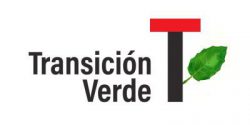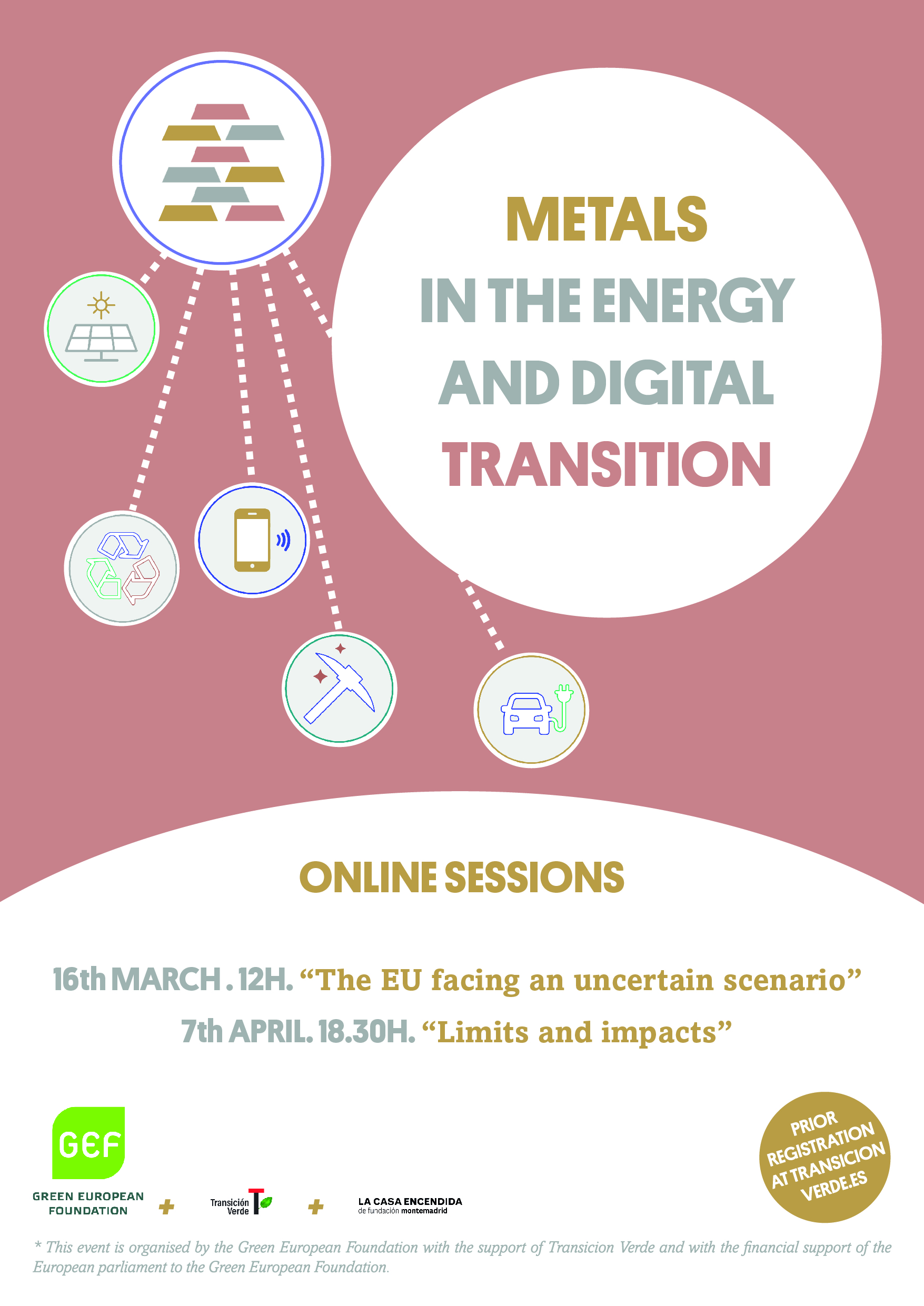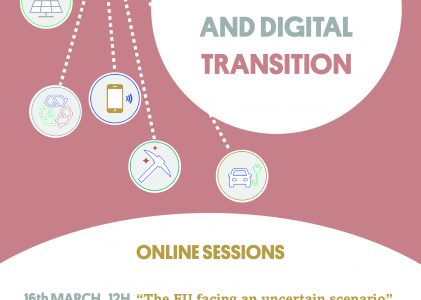There is no doubt that the climate crisis makes the energy transition to renewable sources indispensable. The 2015 Paris Agreement was a historic milestone, at least on paper, in terms of commitments to reduce emissions and boost renewable energy. But some issues have not been sufficiently resolved, some of them linked to the metals required for the «green» and digital technologies on which the energy transition is based.
In two sessions held on 16 March and 7 April, organised by the Green European Foundation, Transición Verde and La Casa Encendida, we tried to reflect on these questions: Is the supply of metals guaranteed to make the ecological transition possible? Where and how are these metals obtained? What are the environmental and social implications of their extraction, transformation and subsequent return as waste? To what extent is health and environmental protection guaranteed in mining areas? What will be the new global geopolitical framework derived from these strategic raw materials? What will be the role of the European Union in this new global geopolitical framework? To what extent is health and environmental protection guaranteed in mining areas? What will be the new global geopolitical framework derived from these strategic raw materials? What role will the European Union play in this new situation? Is it prepared to bear the environmental costs derived from the energy transition?
The first session, with the participation of investigative journalist Guillaume Pitron, Henrike Hahn MEP and researcher Richard Wouters, focused on the new global geopolitical framework resulting from the possession and exploitation of metals. The EU’s concern about its external dependence on countries such as China, the Democratic Republic of Congo, Indonesia, Bolivia and Chile was discussed, as well as the EU’s Raw Materials Strategy and other European initiatives.
The possibility of recovering mining in the European territory as a way towards independence in our supply was also put on the table, a topic that was discussed in more detail in the next session.
On 7 April we had the researcher Alicia Valero, the member of Ecologistas en Acción Santiago Martín Barajas and the MP and president of the Ecological Transition Commission Juantxo López de Uralde.
Alicia Valero, who heads the Industrial Ecology research group at the CIRCE Institute, opened the session with a wide-ranging presentation on the mineral limits of the energy and digital transition in the face of exponential population growth and its need for material resources.
The Spanish situation in relation to mining and its environmental impacts was discussed, and the strengths and weaknesses of the European Communication on raw materials were analysed from a national perspective.
We leave you the link to the videos in Spanish and English in case you want to know the content of the debates and the conclusions reached by our speakers.
Session March 16th. Video:
- Spanish https://www.youtube.com/watch?v=D54Esot1UU0
- English: https://www.youtube.com/watch?v=O7ZreFmiOMw
Session April 7th. Video:


